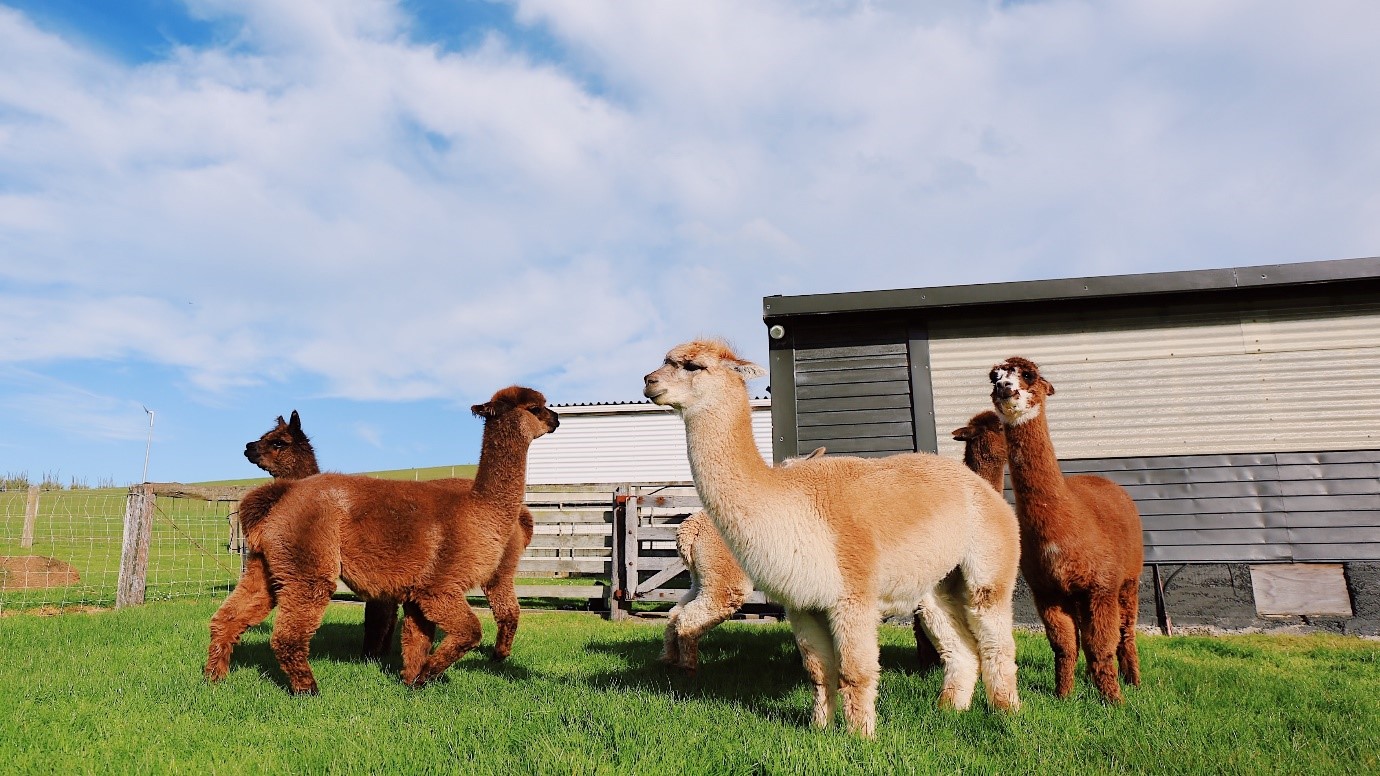Keeping alpacas happy and healthy
 SMALL FARMS NETWORK - SPRING 2020 - ANIMAL HEALTH & DISEASES
SMALL FARMS NETWORK - SPRING 2020 - ANIMAL HEALTH & DISEASES
By Eve Hall
District Veterinarian
P: 0439 078 989 | E: eve.hall@lls.nsw.gov.au
 The alpaca belongs to the South American camelid family and is closely related to its camelid cousins the llama and the camel. Alpacas are wonderful, versatile creatures that tend to have a low impact on their natural environment, making them a popular species for Australian small farms. They are frequently used as guard animals and can produce fleece and meat. Despite their somewhat hostile reputation, alpacas can be very gentle, intelligent and extremely observant animals, often making lovely pets.
The alpaca belongs to the South American camelid family and is closely related to its camelid cousins the llama and the camel. Alpacas are wonderful, versatile creatures that tend to have a low impact on their natural environment, making them a popular species for Australian small farms. They are frequently used as guard animals and can produce fleece and meat. Despite their somewhat hostile reputation, alpacas can be very gentle, intelligent and extremely observant animals, often making lovely pets.
Alpacas require similar care to that of sheep, with a few additional considerations.
Facilities
Well-fenced paddocks for grazing, yard facilities suitable for handling, and access to fresh water and shade are all a must.
Shearing
Alpacas generally require shearing once a year, and this should ideally be done in the warmer months when the risk of cold snaps is low.
Vaccinations
Alpacas are vaccinated twice yearly with the same ‘5 in 1’ vaccine used for sheep and goats to protect against tetanus, pulpy kidney, black leg, black disease and malignant oedema. In some locations, the ‘7 in 1’ vaccination may be recommended to also vaccinate against leptospirosis.
Parasites
Alpacas are less susceptible to internal parasites such as worms than some species. However, in warm wet conditions, or when co-grazing with other species such as sheep, we recommend monitoring for worm burden and strategic drenching.
Vitamin D
Due to Australia’s cloudy winters and the relatively higher vitamin D requirements of alpacas, supplementation with injectable vitamin D3 can be important in preventing ‘rickets’ in growing animals.
Feet and teeth
Hoof care and dental care are also important - feet can require trimming every six months, and teeth should be checked at least annually.
For more detailed advice on routine care for your alpacas, you should speak with a private veterinarian or camelid specialist.
Interesting alpaca facts:
- There are two breeds of alpaca: Huacaya and Suri
- Male: macho
- Female: hembra
- Baby: cria
- Average lifespan: 15-20 years
- Gestation length: 11-12 months
- Australia’s national herd size is estimated at more than 200,000